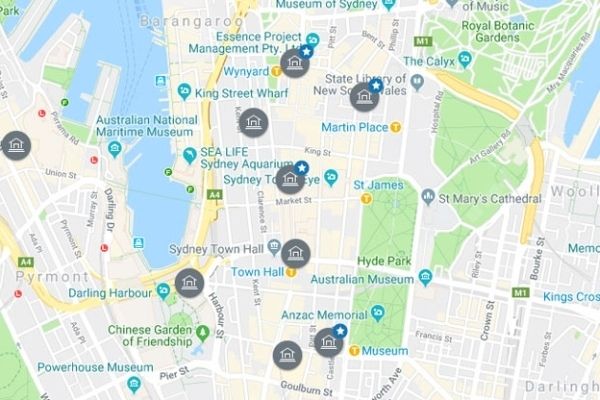Published on the 20/10/2021 | Written by Heather Wright

Adatree launches personal contact tracer app…
Australian open banking fintech startup Adatree has launched a ‘personal contact tracer app’, matching banking data to government hotspot data in a move the developers hope will encourage other organisations to look beyond just commercial use of Consumer Data Right data.
The Covid Hotspot Alert is the first use of open banking data for Covid contact tracing globally and the first non-financial services use case in Australia, Adatree CEO and co-founder Jill Berry told iStart.
“I’m really hoping this will be a bit of a lightbulb moment to show you can do so many other things with transactional data.”
The app leverages card purchase data, matching it with government data and applying machine learning to match locations to transactions. Berry says alerts can be sent within 90 seconds. In Australia it takes four to seven days for contact tracers to notify someone they have been at an exposure site.
Once a user provides consent for Adatree to collect its data for matching, the Covid Hotspot Alert app continuously monitors data and alerts if matches are found.
“Only about 20-30 percent of people check in with QR codes that are the basis of contact tracing,” Berry says. “You’re far more likely to make a credit or debit card transaction than you are to check in.”
While the project – which Berry says is an expense for Adatree which is ‘absolutely not making money off it’ – has immediate social benefits, Berry hopes there will be longer term benefits too, in showing how CDR data can be used for good.
Adatree is a B2B company which provides ‘modular building blocks’ to access and leverage open banking data.
“Being a B2B open banking platform, we talk to a lot of companies that honestly don’t have that much use case creativity,” she says.
“I’m really hoping this will be a bit of a lightbulb moment to show you can do so many other things with transactional data,” Berry says.
While utilising CDR data to provide new products, account aggregation and faster lending is important, Berry is passionate about the social benefits as well as commercial benefits.
“When companies are thinking about innovation the CDR is an excellent pathway to drive ethical real-time data-driven innovation and all companies should be participating in data for good,” she says.
“What can you do with all your transactional data? How can it help vulnerable or disadvantaged people or rural communities?”
The free Covid Hotspot Alert app is currently in public beta – that’s something Berry says is down to some banks not yet having shared data. The deadline for sharing data is 1 November.
Available only for NSW at the moment, it’s expected to roll out to Victoria and Queensland soon.
Once a consumer signs up to the waitlist and is accepted, they are required to provide consent for Adatree to use the data for the purpose of receiving hotspot alerts.
“It’s very much like your personal contact tracer, because it is regulated – we can’t tell the government you have been somewhere, it is just for you to know and then we tell you how to get more information about it, how to protect yourself.”
CDR’s potential for data for good
CDR ‘totally’ underpins the Covid Hotspot Alert.
Adatree is one of five companies regulated and able to access the data currently.
“We did it because we are one of the very few that can and because of our company values and out own culture,” Berry says.
Using its technology for better consumer outcomes is one of Adatree’s core priorities, she says.
“For me it is about proving the capability of our platform and being a next generation leader where this is what I expect tech companies need to be doing in the future – it’s not just about the capabilities for commercial purposes but the capabilities for better and social purposes.”
While CDR is in operation in Australia for the banking market – with plans for it to roll out into the telco and energy sectors – plans in New Zealand remain in their infancy.
Berry’s keen to see New Zealand adopt consumer data rights too – and hopes the Covid hotspot Alert app will provide a tangible example for Kiwis of why a CDR can be beneficial.
“I get really excited about the potential.
“You have real time data, but everything is in [the consumers] control. You can have better services but at the same time you have more control of your data.
“There are so many companies monetising your data. Even right now with screen scraping they are constantly accessing data, harvesting it, they might be selling it and you don’t even know about it.
“But with the CDR there is full transparency so you know exactly what people are doing with it, if they’re getting it from another party, if they’re making money off it, where they’re storing it and all the technical controls around it.
“It is really increasing transparency, privacy controls and just information security governance to the whole data ecosystem,” she says.
“It’s super important for consumers to know their data has so much power, potential and so many capabilities, and for them to be in control of it and be aware of what it means for them and for other companies as well.



























